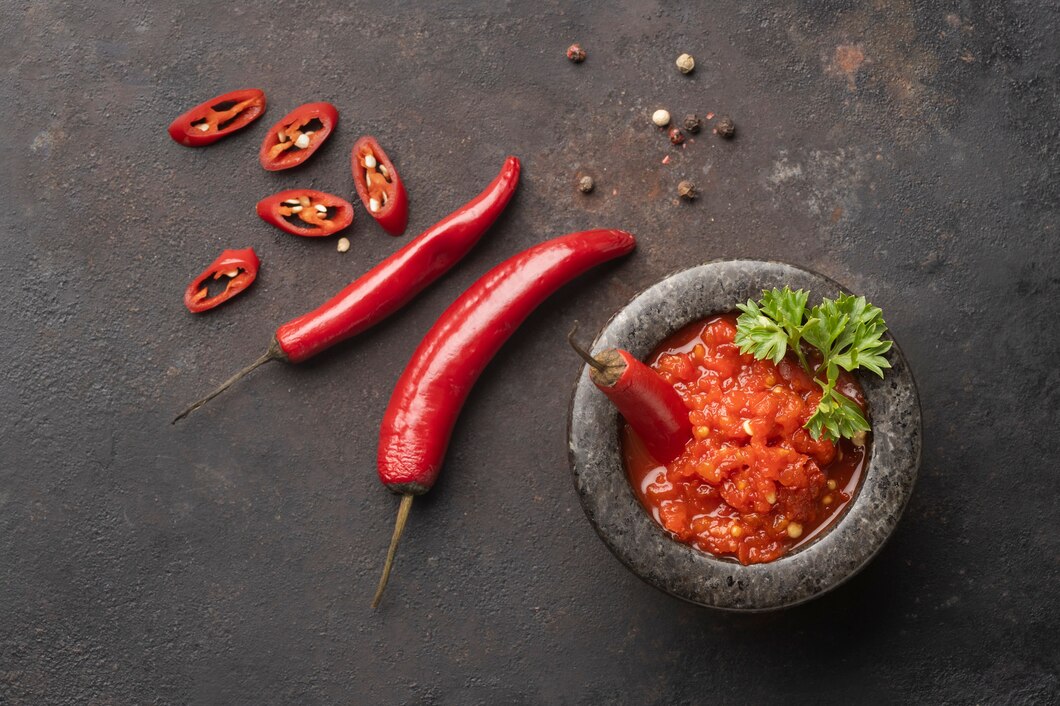Ulcerative colitis (UC) is a chronic inflammatory bowel disease (IBD) that causes inflammation and ulcers in the colon and rectum. For those managing UC, diet plays a crucial role in controlling symptoms and preventing flare-ups. Certain foods can irritate the digestive tract, leading to increased inflammation, discomfort, and aggravation of symptoms like diarrhea, bloating, and abdominal pain. Here’s a guide to 20 foods South Africans with ulcerative colitis should avoid or limit to maintain digestive health.
1. Spicy Foods
Foods like peri-peri chicken, chili sauces, and spicy curries can irritate the lining of the digestive tract. Capsaicin, found in chili peppers, can trigger inflammation and worsen UC symptoms.
2. High-Fiber Vegetables
While vegetables are generally healthy, those high in insoluble fiber, such as broccoli, cauliflower, and cabbage, can be tough on the digestive system. These vegetables can cause gas, bloating, and abdominal discomfort, making them difficult to tolerate during flare-ups.
3. Corn and Maize-Based Products
Corn is hard to digest and can worsen symptoms like diarrhea and cramping. Avoid foods such as pap, maize meal, and corn on the cob, especially during active flare-ups.
4. Dairy Products
Lactose intolerance is common in people with UC, and consuming dairy products like milk, cheese, and yogurt can lead to gas, bloating, and diarrhea. Opt for lactose-free alternatives or non-dairy milk like almond or oat milk.
5. Fried Foods
Greasy and fried foods like vetkoek, samosas, and french fries are difficult to digest and can increase inflammation, leading to diarrhea and abdominal pain.
6. Carbonated Beverages
Sodas and sparkling waters can cause gas and bloating, leading to discomfort. The carbonation can irritate the digestive tract and exacerbate UC symptoms.
7. Caffeinated Drinks
Coffee, tea, and energy drinks can stimulate the digestive system, increasing the risk of diarrhea and abdominal cramps. Caffeine can also act as a diuretic, leading to dehydration.
8. Alcohol
Alcohol, particularly beer, wine, and spirits, can irritate the lining of the digestive system, leading to flare-ups. Additionally, alcohol can increase the likelihood of dehydration, worsening symptoms.
9. Nuts and Seeds
Although rich in healthy fats, nuts and seeds can be difficult to digest due to their high fiber content. This includes snacks like biltong with nuts or dishes incorporating whole seeds, which can aggravate symptoms like diarrhea.
10. Raw Fruits
Certain raw fruits like apples, pears, and grapes can be hard to digest, especially their skins. They may increase gas and bloating, causing discomfort during UC flare-ups. Opt for cooked or peeled fruits instead.
11. Red Meat
Beef, lamb, and pork are high in saturated fats and can be difficult to digest, potentially leading to inflammation. Processed meats like boerewors and biltong are particularly harmful due to their added preservatives and fat content.
12. Legumes
Beans, lentils, and chickpeas are high in fiber and can cause bloating and gas. These foods are particularly problematic for people with UC as they can increase intestinal discomfort.
13. Artificial Sweeteners
Sugar substitutes like aspartame, sorbitol, and sucralose, often found in sugar-free snacks and diet sodas, can have a laxative effect, worsening diarrhea and gas.
14. Chocolate
Chocolate contains both caffeine and sugar, which can aggravate UC symptoms. It also has a tendency to increase acidity in the digestive tract, leading to discomfort during flare-ups.
15. Processed Snacks
Packaged snacks like chips, crackers, and cookies are often loaded with unhealthy fats, preservatives, and artificial ingredients, which can trigger inflammation and exacerbate symptoms.
16. Whole Grains
Whole grain bread, brown rice, and quinoa are high in insoluble fiber, making them difficult to digest and potentially causing gas, bloating, and cramping.
17. Citrus Fruits
Fruits like oranges, lemons, and grapefruits are highly acidic and can irritate the intestinal lining, making them problematic for those with UC. Their acidity can worsen inflammation and lead to increased discomfort.
18. Tomatoes
Tomatoes and tomato-based products like sauces and ketchup are acidic and can cause irritation in the gut, leading to discomfort during flare-ups. The acidity of tomatoes can exacerbate inflammation in the colon.
19. Onions and Garlic
These flavor-enhancing foods can be hard on the digestive system. Onions and garlic contain compounds that increase gas production and can lead to bloating, making them unsuitable for those with UC.
20. Sugary Foods
Sweets like desserts, cakes, and sugary drinks can promote an imbalance of gut bacteria and increase inflammation, triggering flare-ups. Excessive sugar intake can also lead to diarrhea and cramping.
Living with ulcerative colitis can be challenging, but making the right dietary choices can help manage symptoms and improve quality of life. Avoiding or limiting these 20 foods can reduce the risk of flare-ups and keep inflammation under control. It’s always a good idea to consult with a healthcare professional or a registered dietitian to create a personalized meal plan that supports gut health while managing UC. Remember, while these foods may trigger symptoms in some people, others may tolerate them well, so finding what works best for your body is key.








